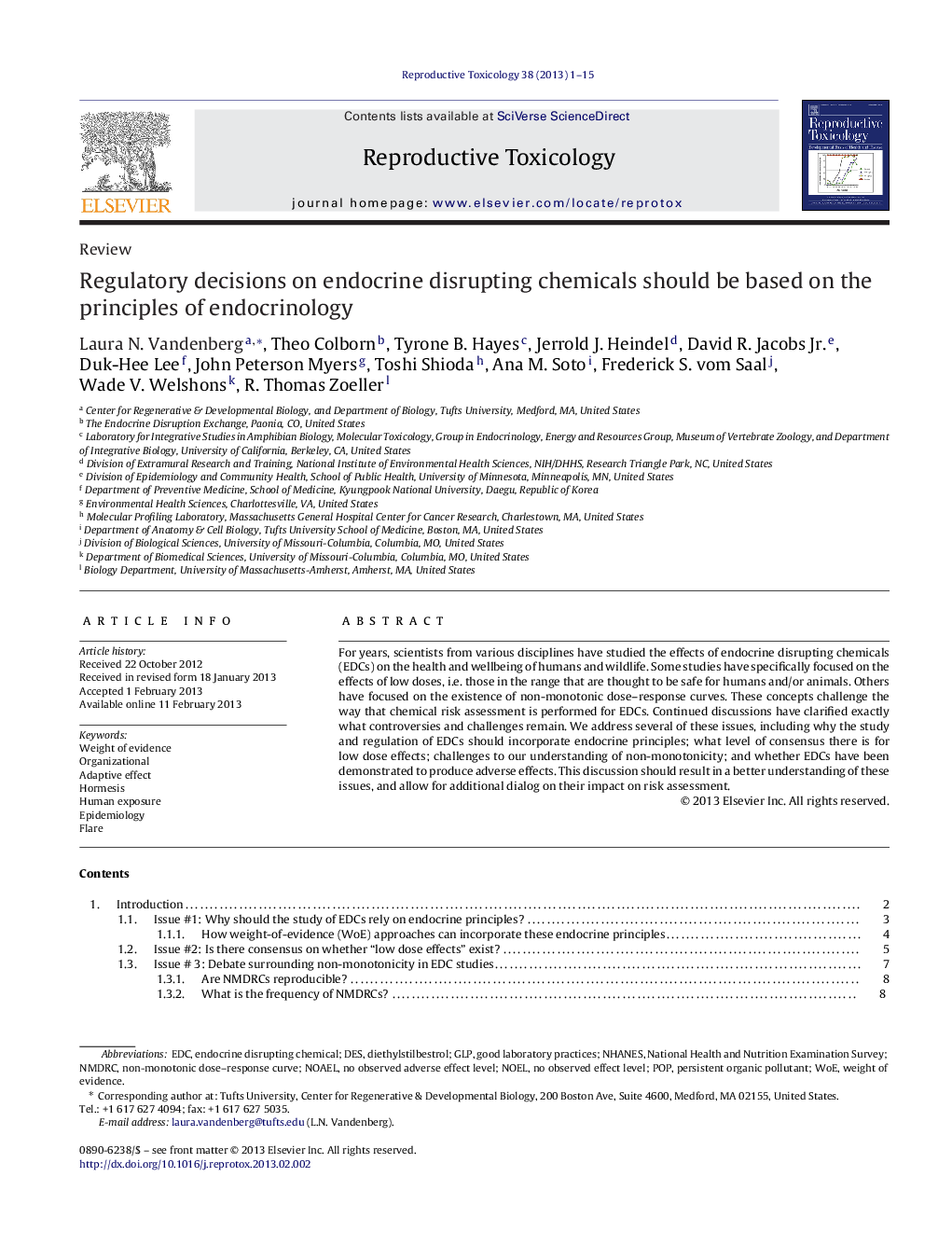| Article ID | Journal | Published Year | Pages | File Type |
|---|---|---|---|---|
| 2593593 | Reproductive Toxicology | 2013 | 15 Pages |
For years, scientists from various disciplines have studied the effects of endocrine disrupting chemicals (EDCs) on the health and wellbeing of humans and wildlife. Some studies have specifically focused on the effects of low doses, i.e. those in the range that are thought to be safe for humans and/or animals. Others have focused on the existence of non-monotonic dose–response curves. These concepts challenge the way that chemical risk assessment is performed for EDCs. Continued discussions have clarified exactly what controversies and challenges remain. We address several of these issues, including why the study and regulation of EDCs should incorporate endocrine principles; what level of consensus there is for low dose effects; challenges to our understanding of non-monotonicity; and whether EDCs have been demonstrated to produce adverse effects. This discussion should result in a better understanding of these issues, and allow for additional dialog on their impact on risk assessment.
